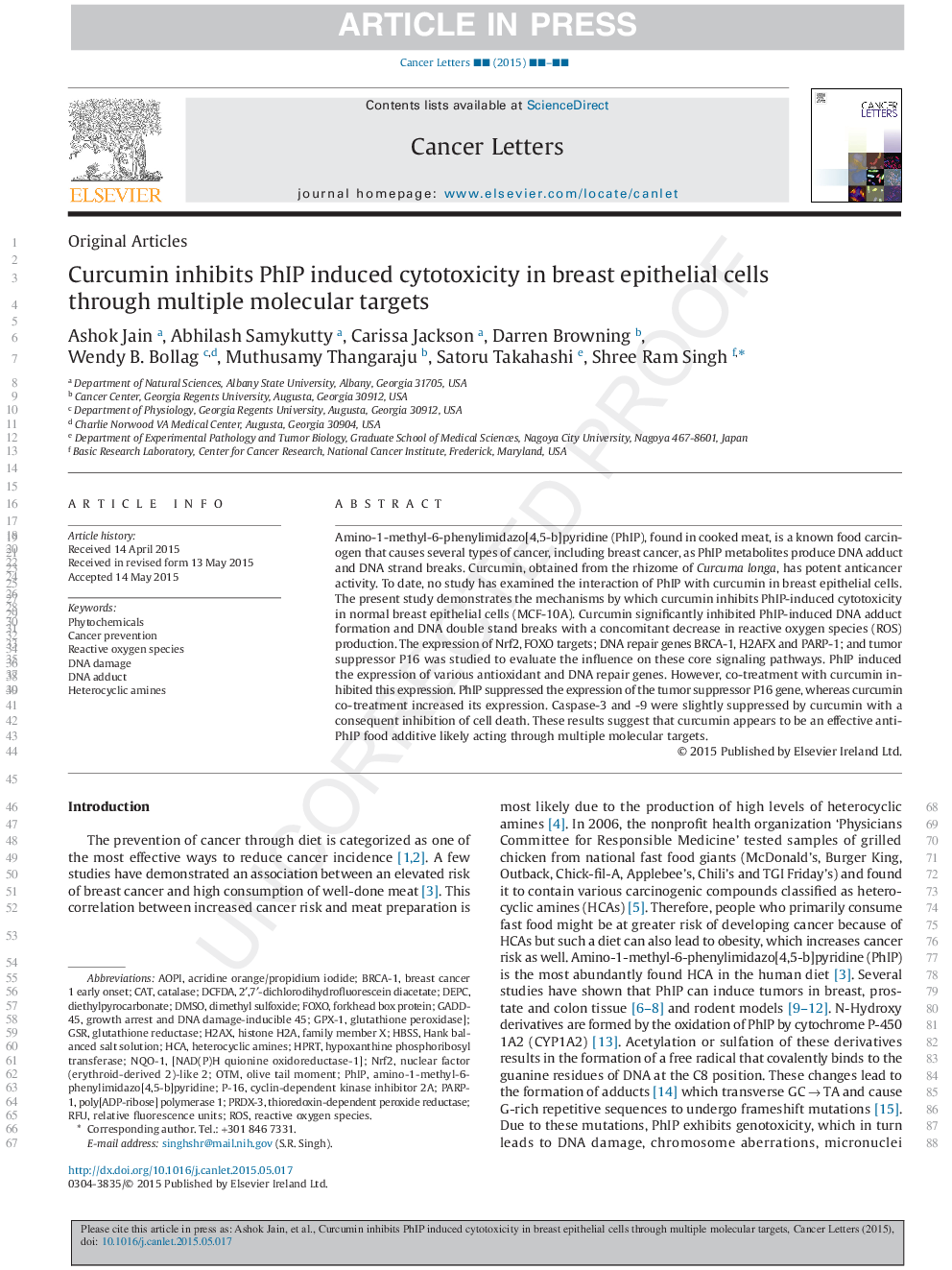| Article ID | Journal | Published Year | Pages | File Type |
|---|---|---|---|---|
| 10899472 | Cancer Letters | 2015 | 10 Pages |
Abstract
Amino-1-methyl-6-phenylimidazo[4,5-b]pyridine (PhIP), found in cooked meat, is a known food carcinogen that causes several types of cancer, including breast cancer, as PhIP metabolites produce DNA adduct and DNA strand breaks. Curcumin, obtained from the rhizome of Curcuma longa, has potent anticancer activity. To date, no study has examined the interaction of PhIP with curcumin in breast epithelial cells. The present study demonstrates the mechanisms by which curcumin inhibits PhIP-induced cytotoxicity in normal breast epithelial cells (MCF-10A). Curcumin significantly inhibited PhIP-induced DNA adduct formation and DNA double stand breaks with a concomitant decrease in reactive oxygen species (ROS) production. The expression of Nrf2, FOXO targets; DNA repair genes BRCA-1, H2AFX and PARP-1; and tumor suppressor P16 was studied to evaluate the influence on these core signaling pathways. PhIP induced the expression of various antioxidant and DNA repair genes. However, co-treatment with curcumin inhibited this expression. PhIP suppressed the expression of the tumor suppressor P16 gene, whereas curcumin co-treatment increased its expression. Caspase-3 and -9 were slightly suppressed by curcumin with a consequent inhibition of cell death. These results suggest that curcumin appears to be an effective anti-PhIP food additive likely acting through multiple molecular targets.
Keywords
DCFDAGPx-1RFUBRCA-1DNA adductOTMHprtH2AXNQO-1GSRDEPCHBSSPhIPHCANrf2CATPARP-12′,7′-dichlorodihydrofluorescein diacetateDMSOROSDNA damageHeterocyclic aminesdiethylpyrocarbonateDimethyl sulfoxidenuclear factor (erythroid-derived 2)-like 2FoxOPhytochemicalsOlive tail momentcyclin-dependent kinase inhibitor 2Ahypoxanthine phosphoribosyl transferaseRelative Fluorescence Unitsforkhead box proteinCancer preventionCatalaseglutathione reductaseReactive oxygen species
Related Topics
Life Sciences
Biochemistry, Genetics and Molecular Biology
Cancer Research
Authors
Ashok Jain, Abhilash Samykutty, Carissa Jackson, Darren Browning, Wendy B. Bollag, Muthusamy Thangaraju, Satoru Takahashi, Shree Ram Singh,
